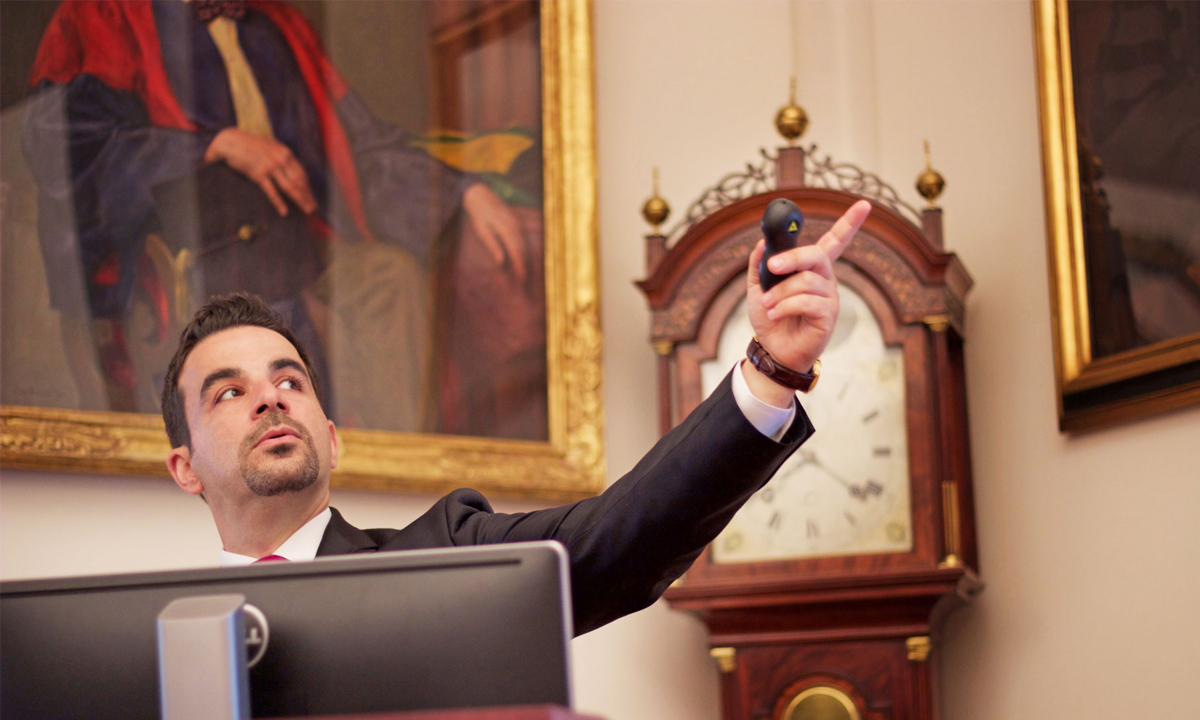
As medical professionals continue to make great strides in understanding the epidemiology of diseases and developing innovative ways to prevent and treat them, it’s important that they take the time to fully develop their clinical research skills in order to make the most of their efforts.
Physicians, scientists, investigators, pharmacists, and pharmaceutical leaders who have a strong clinical research foundation to build on will play an increasingly significant role in moving the medical field forward in exciting new directions over the next decade, according to Ebrahim Barkoudah, MD, MPH, FACP, Medical Director at Brigham and Women’s Hospital in Boston and Assistant Professor of Medicine at Harvard Medical School.
Building on Healthcare Experience to Advance Clinical Research
Dr. Barkoudah points out that while patient care continues to be the main focus for many physicians, a growing number of them are also building on their experiences in the exam room by broadening out into the investigative side as well to deepen their understanding of disease states and determine how best to treat them.
“Many of the skills needed to excel at clinical research extend beyond what is taught in medical school,” he says. That’s why healthcare professionals can benefit by being proactive in seeking out opportunities to sharpen their research knowledge and skills so they can maximize their contributions to the field, both now and moving forward, he stresses. Further, when clinicians focus on building up their strengths in this area earlier in their career path, it can help them establish themselves for success in the field.
Key Competencies for Clinical Researchers
Following are eight key areas that Dr. Barkoudah recommends healthcare providers and others focus on in order to set themselves up for success in the clinical research arena.
- Develop your understanding of best research practices. Anyone with aspirations in the clinical research field needs to be up-to-speed on epidemiology and research design. For instance, Dr. Barkoudah says that as a clinical researcher, you’ll need to know how to develop relevant questions, formulate hypotheses you can test, and design clinical studies to gather important insights.
- Recognize how to effectively track and interpret your data. Sharpening your ability to perform statistical analytics on your findings is also essential, he says. This can encompass a wide range, from establishing baseline criteria and determining what you are measuring and why, to creating a database to gather your findings, and determining how best to report the results in a meaningful way.
- Consider the patient safety and ethical concerns involved in your research efforts. These are important details that need to be taken into account throughout every phase of your explorations—from protecting the safety of clinical trial participants, to ensuring informed consent, to identifying and reporting adverse events, to complying with the Health Insurance Portability and Accountability Act (HIPAA). These are just some of the many sensitive elements that must be in the forefront of your mind every step of the way, Dr. Barkoudah says.
- Familiarize yourself with regulatory guidelines. Whether you are exploring the biology of a disease or the effectiveness of a pharmacological intervention or device to treat it, it’s crucial that you understand the framework and regulations guiding your efforts so you can comply with them appropriately. Just keep in mind that the regulations can vary from one country to the next, so you need to stay abreast of the specifics for your situation, Dr. Barkoudah stresses.
- Strengthen your leadership skills. Clinical researchers need to be able to build strong multi-disciplinary teams and lead them to success. This requires strong negotiation skills, as well as a deep understanding of how to designate duties and manage staff. If you are working with colleagues from different backgrounds, you also need to be sensitive to their cultural norms and make sure you are finding common ground. You also need to be able to create strong networks that cut across different disciplines for best results.
- Communicate in a language that will resonate with different audiences. This is essential to get everyone on the same page. For instance, ensuring effective communication among different sites, sponsors, clinical research organizations, and regulators can be the key to a successful research effort. Dr. Barkoudah points out that you also need to be able to organize the results of your research for publication in timely medical journals. If you’ll be sharing your findings with a lay audience, you also will need to know how to translate scientific techniques into user-friendly language.
- Be prepared to navigate the funding world. Whether you are seeking support for novel research or exploring a tried-and-true concept, you’ll need to find the best funding option for your specific situation and constraints. Make sure you understand any criteria, restrictions, or expectations that go along with support for your efforts. You will also need to be familiar with how the funders want your findings reported back to them.
- Translate your findings into meaningful steps for patients. The most successful clinical researchers can critically evaluate medical literature. This requires looking beyond the research setting to determine how best to apply a variety of discoveries in real-world scenarios. Such critical thinking skills are essential to bring real benefit, such as through the creation of new treatments that lead to improved outcomes for patients.
Apply Clinical Research Skills Broadly
The good news is that the most effective clinical researchers bring to the table a wide range of strengths—including epidemiology, biostatistics, study design, ethics in research, evidence-based medicine, and communicating scientific research—that can be essential for success in a wide range of roles and settings.
When you make a conscious effort to strengthen your knowledge in all of these areas, Dr. Barkoudah says that in the process, you will elevate your career to new heights. At the same time, you will also be positioned to help unravel a variety of medical mysteries and lead to better outcomes for patients.
Written by Lisa D. Ellis


